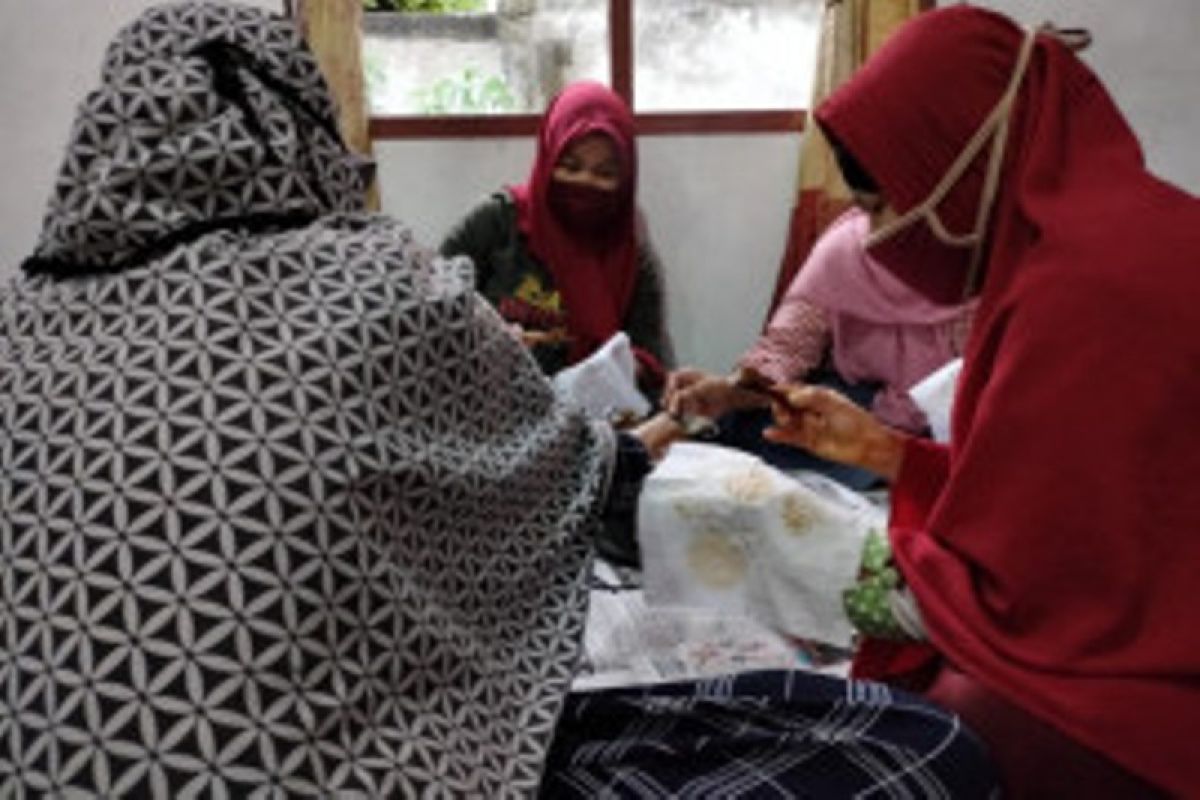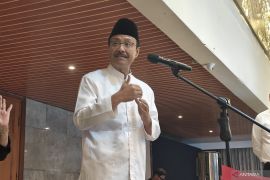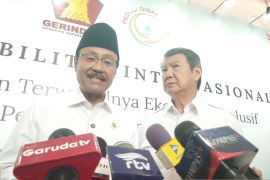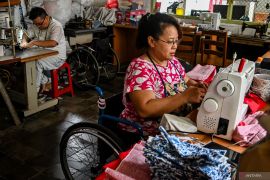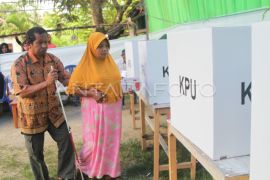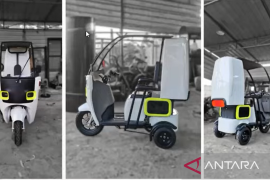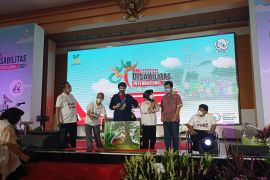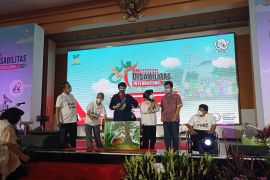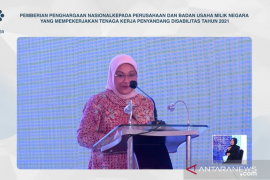They can empower themselves, despite our disabled friends still encountering on-field problems.Jambi (ANTARA) - The efforts made to boost the capabilities of disabled women and provide an additional source of income amid the COVID-19 pandemic have been felt by members of Indonesia's Disabled Women Association (HWDI) in Jambi Province.
Through the batik-making training organized since 2020, they have now developed a new source of income.
Head of HWDI's Regional Representatives (DPD) in Jambi Province Ratumas Dewi stated that this training began in 2020 ever since COVID-19 hit the nation.
During that time, members of Jambi's HWDI had met with Ida, the owner of Rindani batik.
From this point on, HWDI's members got the opportunity to learn to create batik until two of the members were fit for the batik industry.
Members of Jambi's HWDI have enthusiastically welcomed the imparting of this batik-making knowledge, provided from the basic level.
During this training period, all equipment and materials are provided by the owner of Rindani batik.
To this day, a member has developed competent skills in batik-making to create products that can be sold to the market.
This member has also received batik orders from Ida, thereby emerging as a new source of economy activity.
This batik-making training can then become a new source of income for the members of Jambi's HWDI.
In addition, this batik-making training is intended to be an effort by the members of Jambi's HWDI to boost the economy of their community through creative economic empowerment.
Related news: Public transportation facilities for disabled inadequate: experts
Positive response
This batik training activity has been lauded by Head of HDWI's Branch Management Board (DPC) in Jambi City, Detty Herawati.
In addition to being a new source of income, this training can surely be a new source of knowledge for the disabled people in Jambi.
"They can empower themselves despite problems still encountered by our disabled friends in the field," Herawati stated.
In addition to the batik-making training, members of Jambi City's HWDI also receive training in sewing from the city's social service in August 2021. This training was also warmly welcomed by the HWDI members.
Herawati highlighted the high level of interest among her deaf friends to be part of the sewing training, but in order to continue the program, she required additional sewing machines.
"They are capable of making patterns. There are people, who can also design clothes. However, in continuing this program, our friends encountered finance problems. I hope that the government would be able to help by providing sewing machines," she remarked.
Herawati emphasized that the training provided to disabled people should be sustainable, so that the knowledge can be applied in real life and can become a source of income for the disabled people.
Lingering problem
When the pandemic emerged, several disabled people, such as some blind individuals, who worked as massagers, lost their jobs.
"This pandemic is quite restrictive for our disabled friends," Herawati pointed out.
Despite having received various forms of training in order to hone their skills, disabled people in Jambi Province still encounter various challenges, including lack of suitable public transportation service for those with disabilities.
The government of Jambi City has begun offering the Capsule Bus service to help disabled people in Jambi City, but they had stopped operating ever since the pandemic struck.
"When a batik-making training was held, several members were keen to participate, but they could not owing to transportation problems. There were no means of transportation to help disabled people, especially those with physical disabilities," she explained.
"If they use online ojek (motorcycle taxi), they have to pay a much bigger fee," she noted.
In addition, Dewi opined that her group required adequate public transportation facilities for the disabled people in Jambi Province.
Her field findings showed that people with physical disabilities encountered mobility-related problems on the account of the lack of adequate and comfortable means of transportation.
Currently, various institutions, both of individuals or organizations, are ready to provide development training to disabled people.
"There are those who want to give free training. They are ready to facilitate the equipment and materials," she explained.
However, the presence of these institutions is not accompanied by the provision of transportation services that can be utilized by the disabled people, so they could participate in the training.
For many physically disabled people, using personal transportation is not an option.
Using means of online transportation are also expensive at times, so it is not possible to use them every day.
She expressed optimism that policy makers would create suitable public transportation services and facilities for the disabled people in Jambi.
She was also upbeat about the Capsule Bus facility in Jambi City operating yet again to facilitate disabled people in the city.
Thus, the efforts to empower disabled women will be more comprehensive, as they receive support in the form of training backed by adequate infrastructure.
Related news: Differently abled people experiencing inequality in employment
Related news: Parents urged to prepare disabled children for independent living
Translator: Syarif A, Tuyani, Fadhli R
Editor: Sri Haryati
Copyright © ANTARA 2021
